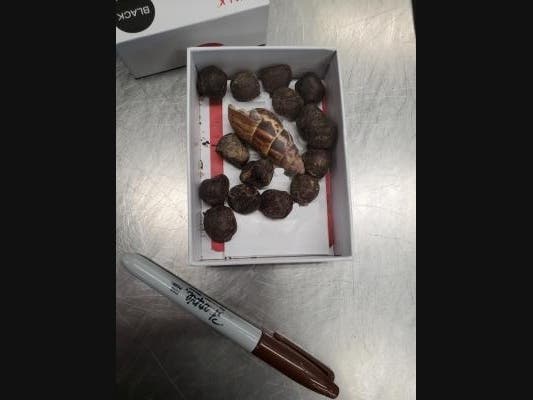Travel
Giraffe Poop Intended For Jewelry Seized At MSP Airport: Officials
Officials seized the box of giraffe feces and the excrement was destroyed via steam sterilization.

MINNEAPOLIS — A passenger who arrived at the Minneapolis-St. Paul International Airport last week was busted for illegally bringing giraffe poop into the country, according to the U.S. Customs and Border Protection.
On Sept. 29, a passenger returning from Kenya arrived at MSP and was selected for inspection by CBP agriculture specialists.
The passenger said she had giraffe droppings from Kenya that she planned to use for a necklace, according to the CBP. The passenger said in the past she had used moose feces at her home in Iowa.
Find out what's happening in Minneapoliswith free, real-time updates from Patch.
Animal feces require a Veterinary Services Permit for entry into the U.S.
Officials seized the box of giraffe feces, and the excrement was destroyed via steam sterilization.
Find out what's happening in Minneapoliswith free, real-time updates from Patch.
"There is a real danger with bringing fecal matter into the U.S.," said LaFonda D. Sutton-Burke, a CBP director out of Chicago, in a news release.
"If this person had entered the U.S. and had not declared these items, there is high possibility a person could have contracted a disease from this jewelry and developed serious health issues."
Authorities noted that Kenya is affected by African Swine Fever, Classical Swine Fever, Newcastle disease, Foot and Mouth disease, and Swine Vesicular Disease.
"CBP’s agriculture specialists mitigate the threat of non-native pests, diseases, and contaminants entering the United States," said Augustine Moore, the CBP Area Port Director for Minnesota.
"CBP agriculture specialists have extensive training and experience in the biological and agriculture sciences, they inspect travelers and cargo arriving in the United States by air, land, and seaports of entry."
Get more local news delivered straight to your inbox. Sign up for free Patch newsletters and alerts.